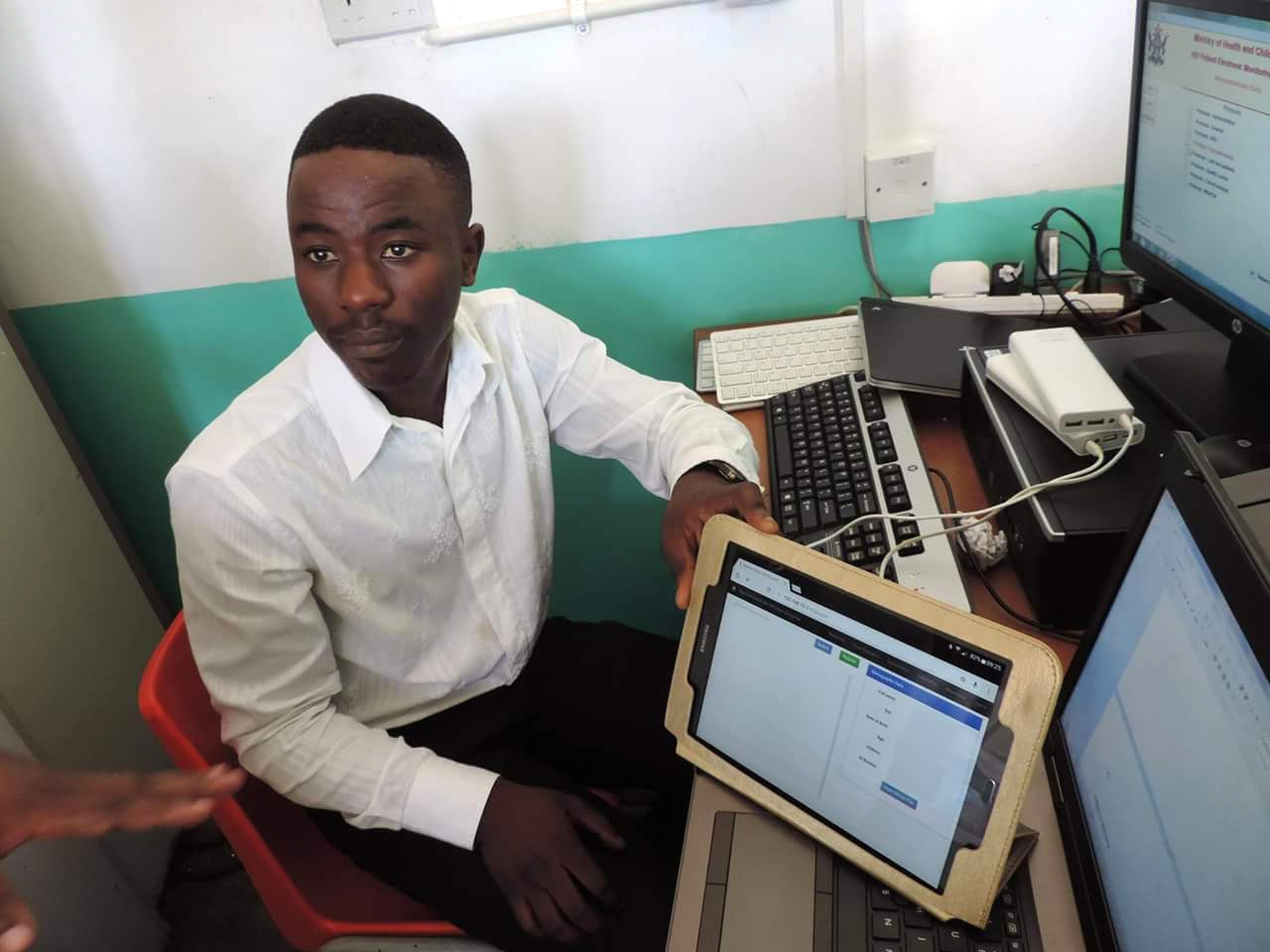Mashambanhaka Health Centre is transforming into a modern health facility where paper records of patients may soon become a distant memory.
The clinic, located at The United Methodist Church's Mashambanhaka Mission Centre 80 miles northeast of Harare, is making strides toward a paperless office following the installation of two computer systems by the Zimbabwe government.
“We were the first clinic in the country to have the Primary Health Care computer program,” said Itai Katsande, “sister in charge” of the clinic.
The clinic, which serves about 900 patients a month, began using the program in January.
Washington Takudzwa Magume, the clinic's data entry clerk, said Mashambanhaka was a pilot project for the government's Ministry of Health and Child Welfare to assess the program before implementing it at other health facilities around the country.
“We are able to record every patient treated at our clinic, regardless of their ailment,” said Magume.
Katsande said every clinic department is in a network. Staff no longer record patient data manually.
Mashambanhaka also became one of the first two clinics in Uzumba Maramba Pfungwe District to use the Electronic Patient Monitoring System for people living with HIV. The other facility was the United Methodist Dindi Mission Clinic.
Mashambanhaka has a backup solar power system to ensure that electricity outages do not affect computers.
“We use EPMS to manage clients on anti-retroviral therapy, and the system enables us to monitor their adherence to treatment,” said Katsande.

Washington Takudzwa Magume demonstrates how the computerized data system works. Photo by Taurai Emmanuel Maforo, UMNS.
Growth on the horizon
The system, which the clinic has used since February 2015, records all vital information including collection of anti-retroviral medication. It will alert clinic staff of any patients defaulting on treatment. The system also identifies patients who try to collect more medication than prescribed.
“If we notice any clients who have not collected their medication, we will assign community-based health workers to follow up,” Katsande said.
EPMS links to other clinics and hospitals, enabling easy transfer of patients for treatment between different facilities. All vital diagnostic information is available online, and use of numbers, not actual names, assures patient confidentiality.
Magume said the Electronic Patient Monitoring System has improved collection of data at the clinic. “Storage of files of people treated at Mashambanhaka is now more secure,” he said.
Bishop Eben Kanukayi Nhiwatiwa, Zimbabwe Episcopal Area; the Rev. Henry Chareka, superintendent, Murewa District; and the Rev. Samson Muzengeza, Mashambanhaka Station chair, interacted with staff and patients. They also toured the site of a proposed “waiting mothers” home.
Construction of the home is set to begin. The local community provided building materials, including 6,000 bricks. Katsande said the home would accommodate 12 women awaiting delivery at the center.
Currently, the facility is improvising with four women staying in a ward. One of the women, Alice Matope, 32, of Nyamukapa village, said she is expecting her third child.
“I delivered my last child at home with the aid of a traditional midwife,” she said. “I have been discouraged from delivering at home since complications may arise and the midwife is neither trained nor equipped with such situations.”
Mashambanhaka Health Centre handles about 23 maternity deliveries a month. Cases requiring special attention are referred to the district hospital at Mutawatawa, 20 miles away.
Chikwanah is a communicator of the Zimbabwe East Annual Conference.
News media contact: Vicki Brown, news editor, [email protected] or 615-742-5469.
Like what you're reading? Support the ministry of UM News! Your support ensures the latest denominational news, dynamic stories and informative articles will continue to connect our global community. Make a tax-deductible donation at ResourceUMC.org/GiveUMCom.





